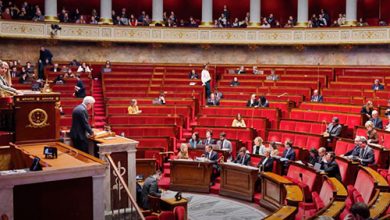STATE OF THE NATION
We are a capstone in a key arch over the Indian Ocean from East Africa’s littoral in the West to Southeast Asian archipelagos to our East. It is emblematic of our significance in the geopolitics of the 2020s. The quantum of maritime trade passing our strategically positioned isle makes regional power plays a hardly serendipitous discovery. Soon our island nation will be an epicentre of global investment – in every sense.
Even if this may seem hyperbolic, the recently concluded presidential election revealed that the game is afoot. Not to be paranoid; but as American novelist Joseph Heller surmised in Catch-22, “just because you’re paranoid doesn’t mean they aren’t after you”; and it seems that the US connection (among many others) played an inordinate role in Sri Lankan politics.
WHERE RHETORIC RULES OVER REALITY?
Wijith DeChickera feels there’s a lot riding on the result of a presidential election over republicanism for regionally strategic Sri Lanka
 AMERICAN CONNECTION The intervention in our sovereign affairs spanned several dimensions. First, defenders of stateside foreign policy to say nothing of apologists for Sri Lanka’s signing of the Millennium Challenge Corporation (MCC) compact were at pains to prove that there was no vested interest in the US$ 480 million grant.
AMERICAN CONNECTION The intervention in our sovereign affairs spanned several dimensions. First, defenders of stateside foreign policy to say nothing of apologists for Sri Lanka’s signing of the Millennium Challenge Corporation (MCC) compact were at pains to prove that there was no vested interest in the US$ 480 million grant.
This however, was interpreted by ultranationalists as a ploy by the US’ military-industrial complex to insinuate itself into the strategically important port of Trinco-malee – our Troy as well as Tyre.
It was an issue that fissured a riven public imagination. Colombo’s Western orientated liberals saw the pact as a welcome initiative to digitalise the island’s outdated bureaucracy vis-à-vis land ownership and streamline traffic management systems. Sri Lankans hostile to an internationalist mindset had less charitable conspiracies.
A bifurcation between a raft of islanders on where we float diplomatically is bound to widen further, given the increasing geopolitical interest in our region. We desperately need a new multi-aligned foreign policy.
LOTUS-EATING Second, speculation of all sorts saw a diplomatic row over a presidential frontrunner’s ostensible nationality. The US pussyfooted around the issue – citing red tape rather than reveal outright the then candidate’s American citizenship status – provoking wrathful resentment.
In an increasingly integrating planet, nationality may seem a non-issue. It is however, the law of our land; and a test of a candidate who contested on law and order grounds among others such as security. That may prove to be academic now.
President Gotabaya Rajapaksa in his maiden state speech in the historic city of Anuradhapura on 18 November sent out several strong signals that may make sundry challengers think twice. His unequivocal stance located the electoral victory in a majoritarian Sinhalese polity. The unsubtle rap over the minorities’ knuckles indicated that a host-guest paradigm still prevails. His nod to the Buddhist clergy compounded a sense that government could take an ethnocratic turn. One can only hope these are sops to Cerberus and that more a savvy president than defence secretary will develop?
CHINESE PUZZLE Last year’s abortive unconstitutional coup fuelled rumours about the alleged role of Chinese geopolitics in bankrolling local power plays. Now, given another Rajapaksa’s undeniable ascendancy in American eyes too, it seems they are entrenched as the first family in more than one sense.
If developments stateside are any indicator, we won’t have long to wait before our new government swings the prosperity pendulum to the West. Where once a political dynasty was seen as being in bed with Beijing, would it now welcome Washington with open arms?
While we can’t blithely dismiss the possibility of our once blessed isle becoming the happy hunting grounds of world powers, we’re still masters of our own destiny. The new president made it clear under the bo tree that he would bow to no foreign power or alien gods. Such rhetoric may thrill the hoi polloi but hamstring our growth and development prospects, until or unless a clearer and sharper foreign policy emerges from the red mist of victory.
DEMOCRACY AT WORK We had thought the president would take time to settle in to a perhaps short-term coexistence with his political opponents in parliament. Now, this could become open season on republican setbacks again.
Soon after ex-president Mahinda Rajapaksa indicated that constitutional reforms could see a return of a presidentialism privileged by ‘patriotism,’ the discourse was about when the incumbent premier would step down to allow a smooth transfer of power.
Being sworn in at a site of ethno-religious rather than national significance may be only a start to the typical ‘majoritarianism redux’ characteristic. But if our new head of state is serious about a broader interpretation of the democratic mandate, an inclusive pluralistic national identity, growth peace with justice for all etc. (which a little under half of Sri Lanka voted for), he’ll have to work with more intent.
Rhetoric will have to be replaced by reality and general goodwill.
Because there is far more to national development than growth, grand gestures to the electorate that brought one to power and a general sense that state infrastructure is more important than national integration.






